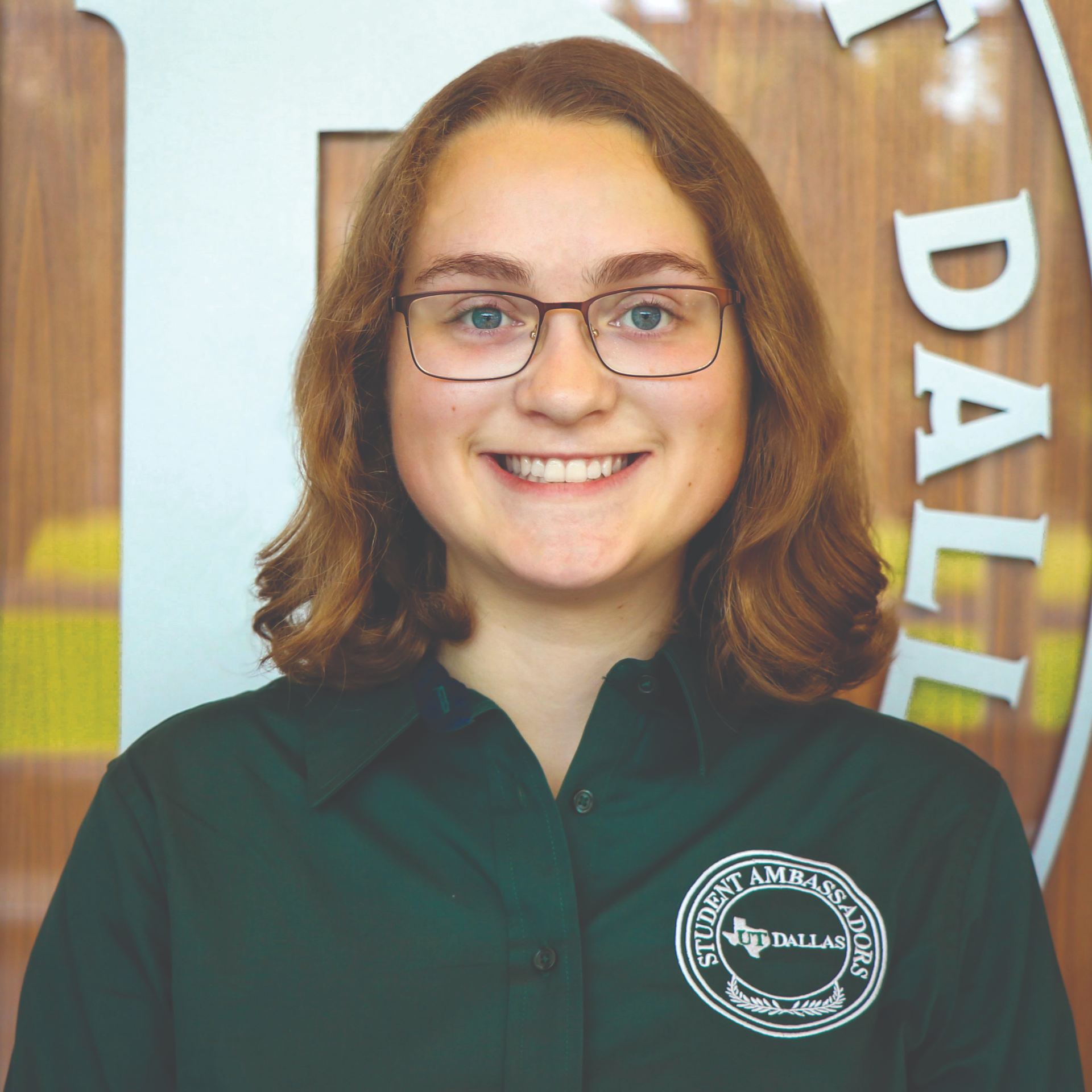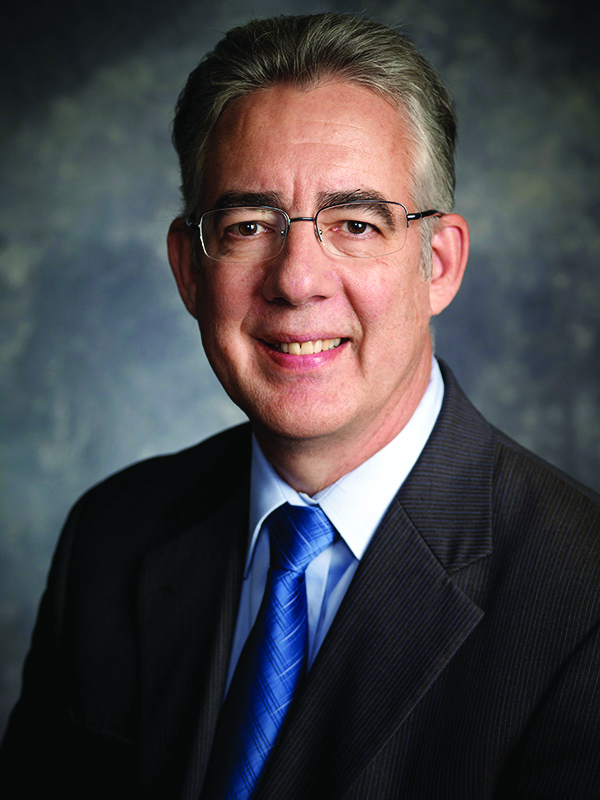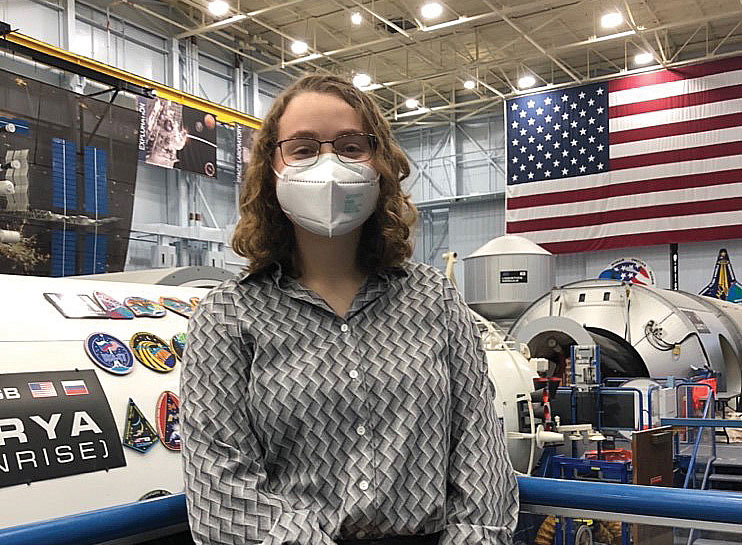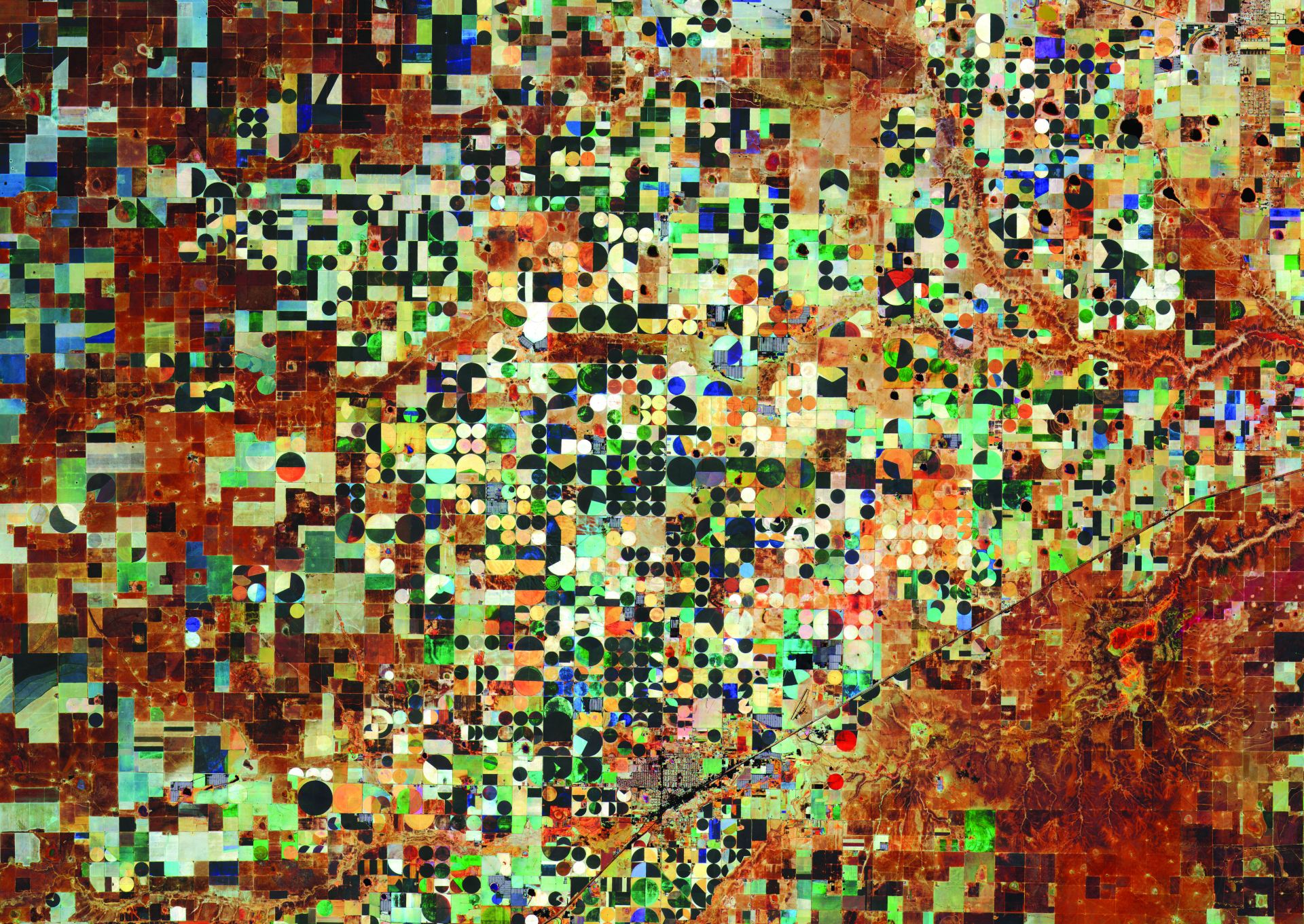Anja Sheppard BS’22 joined The University of Texas at Dallas as a member of the Eugene McDermott Scholars Program — a comprehensive honor awarded to incoming high school students from throughout the country who excel in academic achievement, leadership and service. She continued to excel. As a junior, she was named a Barry Goldwater Scholar, one of the oldest and most prestigious national scholarships in STEM. As a senior, Sheppard was named a National Science Foundation Graduate Research Fellow, a highly competitive program for graduate students pursuing a degree in STEM fields.
In addition to her numerous academic accomplishments, Sheppard also mentors her peers and serves as a UT Dallas Student Ambassador. In 2021, Sheppard served as an ambassador at the gloval level when she became a delegate to the Space Generation Congress. She represented university students and young space professionals to the United Nations, space agencies, industry and academia. Sheppard shares the experience as a delegate in her words.

Anja Sheppard

Dr. Mark W. Spong
I became involved with aerospace back in high school, when I competed in the NASA Student Launch rocket competition. I never imagined my interest in space accompanying me through my career, because my major at UT Dallas is computer science. However, as I pivoted toward working on autonomous vehicles in internships and research, I began to imagine myself working on space robots. In 2020, I was accepted as one of a few Pathways interns at NASA’s Johnson Space Center, placing me into a competitive co-op program that would allow me to rotate between school and work throughout the remainder of my degree program. While at NASA, I worked on communication infrastructure for the International Space Station mission control, flight software for the upcoming Gateway Station and perception for the Valkyrie humanoid robot.
Everything fell into place the summer when I became a member of the Space Generation Advisory Council (SGAC), an international group of young professionals in the space industry with a permanent appointment in the United Nations Committee on the Peaceful Uses of Outer Space. SGAC organizes several project groups on topics such as ethics and human rights, satellites, space policy and more. Additionally, they organize the Space Generation Congress, which takes place each year just before the International Astronautical Federation’s conference, the IAC. The congress is a high-intensity, three-day event where 150 selected delegates from around the world join together for panels, discussions and keynote speeches. Additionally, each delegate is a part of a smaller breakout group, which hosts a workshop dedicated to a specific space-related topic and formulates recommendations that are then presented to the United Nations. This event is a great opportunity to gain fresh perspectives on pressing technical and political questions in the space industry.
When I received word that I had been accepted to attend the congress, I was excited beyond words. At the time, I had no idea what an incredible community I was about to join. I took a leap of faith, boarded a plane and made my way to Dubai.

Sheppard worked as an intern at the Johnson Space Center in Houston. This International Space Station model was right next to her desk.
On the first day of the congress, I arrived at the event venue bleary-eyed and a bit jetlagged. The first event on the schedule was a small breakfast while everyone checked in. I sat down in the corner, nursing a cup of coffee and watching the excitement unfold around me. As people entered the room, eyes would light up and friends would run to each other for a big hug. These were friends who spanned continents and were only able to see each other when they attended the congress. From that moment on, I knew that I had stumbled across something really positive that could create community across political and social barriers, all in the name of furthering space exploration. I saw the mission of the International Space Station unfolding before my eyes: international cooperation for the sake of something greater.
I quickly acclimated to the group dynamic, introducing myself to people and trying to remember as much about each person as possible — their name, where they were from and what they did. I met an enthusiastic Moroccan student who was living in Japan, a young professional from Cypress, and a space policy enthusiast from The University of Texas at Austin. The next couple of days were a blur. I woke up early in the morning for a full day of events that didn’t end until 10 p.m. We watched panels from Blue Origin, the president of the International Space University and heads of space agencies and companies working to leverage space in order to combat climate change. I soaked it all in as best as I could, taking notes on new topics and asking questions of the panelists and speakers. My breakout group focused on earth observation, which is the use of satellite imagery to keep tabs on ecological issues from a top-down point of view.
After final presentations from the breakout groups and closing remarks, the Space Generation Congress was at an end. From there, each of the delegates was released to explore Dubai and attend the IAC, which started up the next day. I only had two days left in Dubai, so I visited the old city and the souks with some new SGAC friends, then attended technical and plenary sessions at the IAC. I heard from the new astronauts from United Arab Emirates as well as some NASA astronauts who had helped them train.
Overall, my experience in Dubai was more incredible than I could have ever imagined. I made lifelong friends, networked with important figures in the space industry and found a place for myself in the community. I discovered a way to combine my technical expertise in space robotics with my interests in ethics by joining the SGAC Space Policy Project Group. In the end, the most valuable aspect of this trip was building an international community of friends who are enthusiastic about where space exploration will take us. I know that in the future, these will be the people I will collaborate with professionally to help usher in a more peaceful world. I’ll continue collaborating virtually with this new global network on SGAC projects until we see each other again at the next congress!

Sheppard’s breakout group used satellite imagery to study ecological issues, such as this composite image of Hereford, Texas, that depict changes in vegetation growth.
Discover More
ICPC TEAM RAISES STANDING,
QUALIFIES FOR WORLD FINALS
Above: The 2020 team qualified for the world finals after finishing 15th out of 65 teams in the ICPC North America Championship in February 2021. (Left to right): Dr. Bill Poucher, ICPC executive director; Mohammadreza (Reza) Haghpanah, the team’s assistant coach; An Q. Nguyen; Duy Vu; Darrin...
Scientist in the A.M., ‘Snack’ in the P.M.
Bioengineering PhD student Leroy Arthur was at a Dallas restaurant with friends when he received what seemed like a random message through his Instagram account, which shows a video of him skydiving and photos of him fashion modeling and spending time with friends and...
UTDesign®
NATIONAL CAPSTONE DESIGN CONFERENCE HOSTED ON CAMPUSUT Dallas hosted the national Capstone Design Conference in June. The event organized by members of UTDesign®, the Jonsson School’s signature senior design capstone program, drew more than 200...
A Circle of Mentorship
SOCIETY OF WOMEN ENGINEERS HONORED FOR EXCELLENCE Medha Aiyah BS’21, graduate student in computer science, met engineer Lisa Depew when she worked on her Girl Scout Gold Award project to create a solar cars curriculum as a high school student in El...
DISTINGUISHED LECTURER CONNECTS ENGINEERING, EQUITY AND INCLUSION
Dr. Yvette Pearson, vice president for diversity, equity and inclusion at UT Dallas, tells audience members that user-centered design integrates the entire user experience throughout the iterative process.I n the wake of George Floyd’s murder in...
Love & Stem
Jonsson School faculty and staff members pose with their spouses who also work at UT Dallas at the iconic Love Jack sculpture on the University mall. Back row (from left to right): Tonya Griffin, senior director of finance and administration in the...
